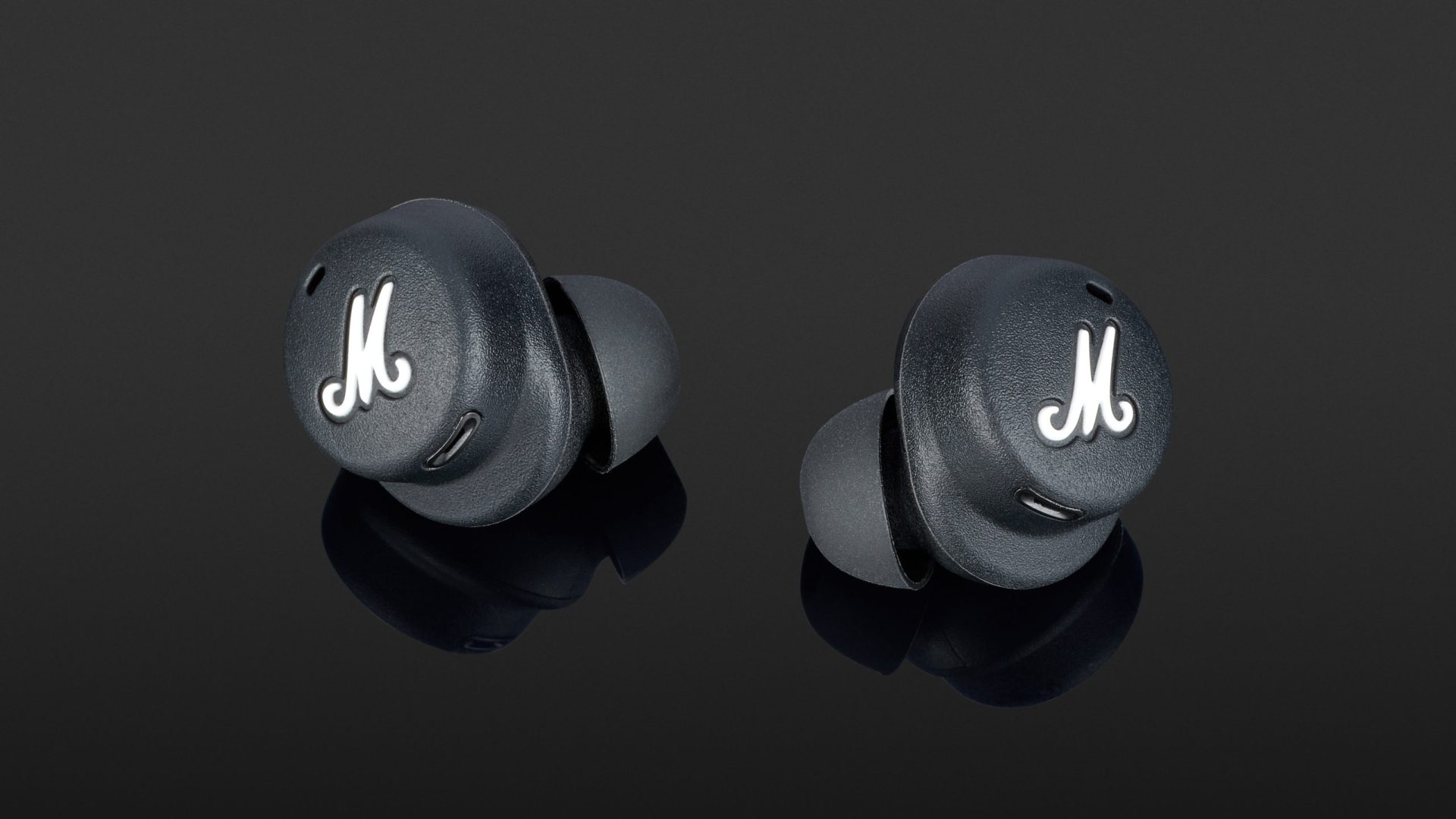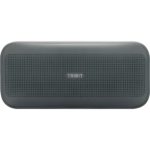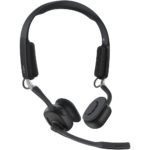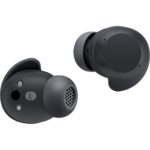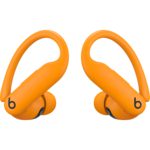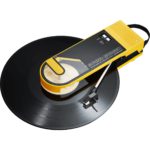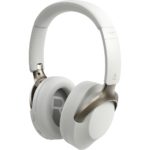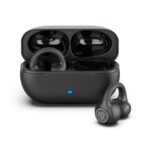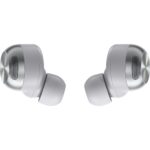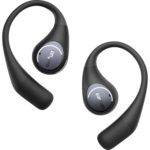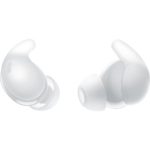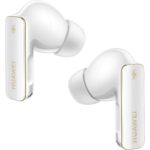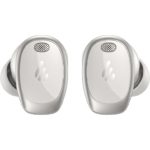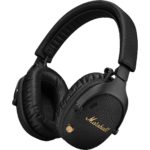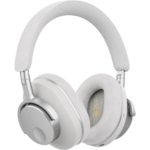The Marshall Mode II don’t offer long-lasting earpiece batteries and a volume control. The AAC codec might also be a feature you miss. From a sound perspective, however, these comfortably fitting True Wireless in-ears do not display any weaknesses, which means they are small, sweat- and water-resistant earphones that are versatile for everyday use. The transparency mode in the upper levels gives practical added value despite the existence of background noise. Speech intelligibility on the phone is also good, apart from in a louder environment.
- Lightweight, ultra-compact format
- IPX5 water resistant handset, IPX4 water resistant case
- App connection with transparency and sound settings
- Case supports wireless charging via Qi
- No support for AAC codec
- Remote without volume control
- Earpiece with low battery life
- Rather unreliable wear detection
With the Marshall Mode II, the venerable British manufacturer brings to its range True Wireless in-ears that are powerfully tuned and support aptX and Bluetooth 5.1. Individual sound settings can also be made via connection with the app, while the amplification of outside noise can be adjusted to the surroundings.
Despite the miniature format of the earphones and charging case, the design typical of the company’s famous guitar amplifiers is still in evidence, making the Marshall Mode II visually eye-catching. The case can be effortlessly enclosed in one hand and weighs just 35 grams, while the in-ears, at five grams per side, encourage a comfortable fit. This is also quite stable, as the round, flat housings are fully embedded in the ear and do not protrude so that these earphones can fit under a cap without any trouble. Both the charging case and the in-ears have a water-resistant finish, which protects the system from weather-related moisture during outdoor activities. The case has IPX4 certification, while the earphones meet the requirements of the IPX5 protection class.
Battery life
In standard operation, the Marshall Mode IIs achieve a runtime of four hours and 40 minutes per charge with the volume turned up. This is reduced to four hours when ambient mode is used. The in-ears can be fully charged three times and a further 70 per cent charge, giving a total runtime of 21 hours and 40 minutes in basic mode, while 18 hours and 45 minutes are available in transparency mode. Although the earpieces offer a rather low battery life, which among other things might be due to their low weight and the small housings, a charging cycle takes almost two hours; therefore, the system does not necessarily seem suitable for longer trips. However, the case’s battery reserve is restored after 60 minutes of charging via the USB-C port, for which a USB-C to USB-A charging cable with a length of 100 centimetres is included. Alternatively, the case also supports wireless charging via Qi.
Operation
Pairing the Marshall Mode II, which offer a range of up to ten metres within an urban environment, can be done by opening the case. This turns the system on and puts it into pairing mode. When connecting new devices such as a tablet or laptop instead of a previously used smartphone, however, the case button must be pressed and held briefly in order to pair the earphones. The in-ears remember up to four devices, which they then connect to automatically. However, it is not possible to switch the earpieces on and off manually via the touch-sensitive surfaces, so this means the case is always required.
Once a wireless connection is established, a tap on the right side controls playback while the left side activates and deactivates ambient mode. In addition, calls can be accepted and ended on both sides. Voice assistants can also be called up by double-tapping the left earpiece, and the same gesture on the right side will skip forward to the next track. To skip back, you need to triple-tap the left earpiece. The touch control cannot be adjusted via the app, so you will have to put up with this lack of control over the volume. However, the control panels can be switched off in the app, which prevents accidental commands when inserting and removing the in-ears, as their ultra-compact housing offers hardly any holding surface. However, the earphone’s wear detection cannot be switched off, and this, in contrast to the remote, reacts rather unreliably.
Marshall Bluetooth App
The Marshall Mode II’s app (for Android and iOS) is equipped with an EQ for sound control, and six pre-configured pre-sets are available for selection in addition to the basic sound, “Rock”, “Speech”, “Pop”, “Hip-Hop”, “Electronic” and “Jazz”. A further pre-set is also provided for custom settings. The transparency mode can be adjusted and activated or deactivated in ten steps. Firmware updates can also be carried out via the app, and it also has a separate battery status display for both earpieces. However, this is not very informative and appears to be in need of improvement, as only 30 minutes of listening time remained after a value of 50 per cent.
Speech intelligibility on the phone
Background noise is not attenuated by the Marshall Mode II during phone calls, but otherwise, the presentation of your own voice was appealingly natural and there was good intelligibility. In a quiet environment, however, a low, metallic buzz was noticeable, and this could be perceived on both sides of the conversation.
Audio codecs
In terms of codec selection, the Marshall Mode II rely on the higher-quality aptX in addition to the Bluetooth standard SBC, while support for the AAC format has been omitted. This can be noticeable, especially with iOS devices, in the form of quite high latency; there is a noticeable offset between picture and sound when mobile gaming or watching movies.
Transparency mode
In Ambient mode, external noise is cleanly amplified via the microphones, and the intensity can be adjusted in ten per cent increments. The overall amplification could have been more effective since the environment is only perceived better above a medium setting. With paused playback, however, a conversation can be held from an intensity of 70 per cent without having to take out the earphones, while announcements on a railway platform were still understandable from a few metres away at settings between 80 and 100 per cent. From a value of 80 per cent, however, background noise was perceptible, and this increased with the two subsequent levels.
Sound
The Marshall Mode II’s tuning seemed appealingly musical and, in terms of basic character, it was honest rather than glossy, with a subtly warm rounding. At the same time, the bass reproduction was by no means slim, but tight, powerful and quite substantial. The low bass also had substance but aimed for a controlled, compact reproduction rather than a powerful one.
This was followed by a playful midrange with good localisation and high speech intelligibility, whose presentation seemed open and spacious. Voices were reproduced with presence and realism, which was also noticeable when listening to audiobooks, podcasts or films and encourage fatigue-free listening.
The treble reproduction could also be characterised as fast and concise, it created accents but did not come across as demanding or loud. The upper ranges also blended coherently and contributed to a lively, powerful basic sound with impeccable all-rounder qualities.
Technical specifications
- Ear couplingIn-ear
- Typeclosed
- Transducer principledynamic
- Frequency response (headphones)20 - 20.000 Hz
- Impedance16 ohms
- Sound pressure level (SPL)179 mV @ 1 kHz: 100,5 dB
- Weight without cable5 g each, Case 35 g
- Cable length100 cm
What's in the box
- Eartips in four sizes (S/M/L/XL)
- USB-C to USB-A charging cable
- Charging case
Special features
- BT codecs: SBC, aptX
- BT version: 5.1













